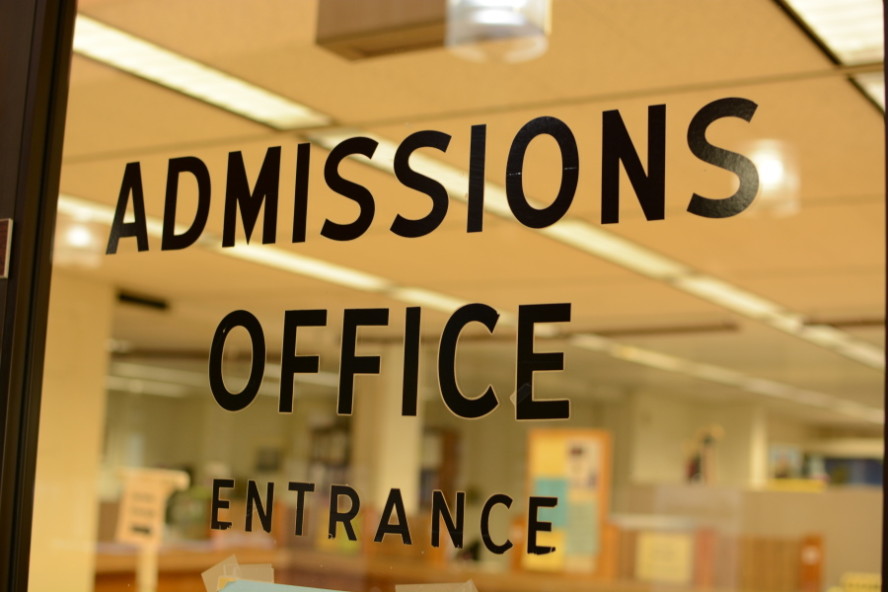Admitting the Struggle, College Knowledge, The Mission to Admission
February 1, 2017
For most students, senior year is a time that is awaited for since freshmen year. However, students often underestimate the pressures associated with deciding what to do upon graduation. There is a variety of different paths that students can choose to pursue. Some of which include: enlisting in the military, taking a gap year, taking online classes, and going to college, either a two year or four year college. The majority of students at Robinson, choose to take the path to college. While certain students have been dreaming of attending a particular college since they were young, other students ponder about what school will be most appropriate for them.
Colleges have various policies ranging all the way from early decision to regular decision. Most early policies allow for students to receive admissions decisions earlier which leaves students with more time to decide where they would like to commit. However, this comes with a catch, students must prepare and submit their applications much earlier in the year.
“I did not apply early as I really just wanted to focus on my high school academics and make sure that [was taken care of] and because I just wanted to be sure as to where I would be applying,” said Lis Harris, 12. Regardless of what combination of action students chose, there is a fairly large time commitment associated with the application process.
“It is essentially as if students are taking an eighth class in addition to their seven classes at school,” said high school counselor Brianne Slizofski. Students are not the only ones who become challenged in managing their time. Counselors also become busy writing letters of recommendation for their students.
“[The] thing that can be challenging is that most counselors don’t have time to write letters during the school day, so we write letters on our own time, usually nights and weekends and it can be very time consuming. We ask students to request letters of recommendation about a month in advance of the college application deadline. That being said, there are many students who request letters of recommendation late, which we don’t like, because it gives us less time to write an effective letter, which in turn makes it harder,” said Slizofski. During the busiest times of the year counselors can have in between 35 to 50 letters to write. In order to stay organized with these large amounts of letters counselors use organizational methods.
“Each counselor has their own system. Some counselors use spreadsheets, others use folders and lists—it’s much like time management strategies, specific to each individual,” said Slizofski. Each of the letters must be personalized to highlight each student’s attributes which helps them to stand out amongst the rest of the applicants. In most cases students don’t get to view the letters that the counselors write before they are sent to each of the colleges. However all the worries caused by the the admissions process are considered much less in comparison to the amount of joy that is contained by each acceptance letter.
“The first thing I felt was the excitement and pride I had in myself for getting into a college. You finally get to see the final results of all that hard work you put in,” said Emily Smith, 12. Moments such as those make student efforts worth the challenges that come with high school.
Once acceptance letters have been received it is up to the students to decide which school they would like to commit to and what schools they will have to decline offers from. There are many factors that students have to consider before they arrive at their final decision. Factors include: academics, athletics, tuition, proximity, prestige, family, and friends.
“The factors I most[ly] look at is the medical and research programs they have. I also look for a good business school with lots of connections. The location matters as well. Cities have lots of opportunities and important people surrounding it which will help one day if you know the right people,” said Smith. After seniors weigh out the benefits and drawbacks of each option they finally arrive at a conclusion and are ready to spread the news of their accomplishment. Social media platforms begin becoming populated with prideful acceptance posts and encouraging comments of congratulations.
“It’s really exciting seeing my peers getting accepted into college. It’s an amazing achievement and it’s something to celebrate after struggling through high school together. I feel like it gives our graduating class a sort of family bond. It also creates anticipation for those still waiting to hear back from colleges, hoping we got into our dream school,” said Harris. These encouraging responses from peers create a positive and optimistic tone that reminds students of the power embodied by encouragement.
